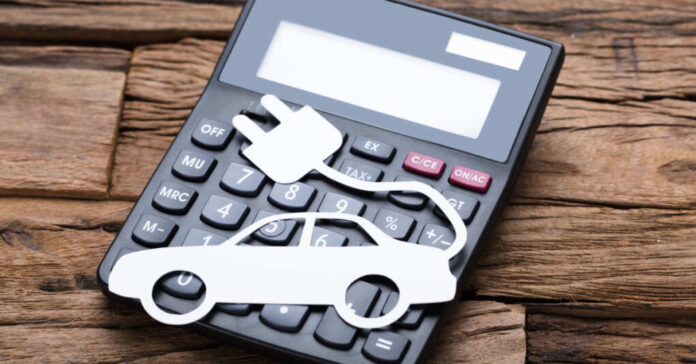
Sen. Deb Fischer (R-NE) is actively looking for ways to make purchasing EVs just a little more painful in the days of President Joe Biden’s climate-change-fueled insanity, and it looks like she found just the thing.
While Fischer’s bill is called the “Stop EV Freeloading Act,” its intention is anything but amusing to those looking to save the planet one horrific, world-ending, gas-powered car at a time.
Under the proposed bill, cosponsored by Sens. Pete Ricketts (R-NE), John Cornyn (R-TX), and Cynthia Lummis (R-WY), electric vehicle battery modules weighing more than 1,000 pounds will have an added fee of $550 imposed at the point of purchase. Additionally, each electric vehicle sold by its manufacturer or producer will pay a fee of $1,000 at the time of purchase. That’s a hefty $1550 in additional fees for the climate change enthusiasts, and the fees themselves are not friendly to the cause.
The purpose of collecting these fees is to balance lost tax revenue that traditional gas-powered vehicles would contribute to the Highway Trust Fund throughout the lifespan of the automobile. The Highway Trust Fund plays a crucial role in funding more than 90% of federal assistance for state highways.
Senator Fischer explained that it wasn’t fair that the millions of drivers choosing to stick with the tried and true gas-powered vehicle should foot the bill to make up lost tax revenues on those purchasing EV cars. After all, they will be using the same roads.
Fischer’s bill, officially filed on Thursday, September 21, 2023, has received endorsements from several organizations, including the American Road & Transportation Builders Association, the American Society of Civil Engineers, the Associated General Contractors of America, and the National League of Cities.
The rise of electric cars has made it harder for states to collect money from gas taxes, which are usually used for road upkeep.
Gas taxes have been a significant part of how states pay for roads, but over the years, the amount of money this revenue has been shrinking. In 2022, it made up 38.4% of how states got money for transportation, down from 41.1% in 2018, according to data from the National Conference of State Legislatures.
Even the federal gas tax has taken a hit. Since 2008, Congress has moved billions of dollars from the general fund of the Treasury Department to the Highway Trust Fund to make up for the lost income. The growing call to rely on electric vehicles is predicted to exacerbate the disparity between gas tax revenues and infrastructure maintenance requirements in the coming years. It’s predicted that states may face a substantial loss of up to $87 billion in gas tax revenue by 2050, as estimated by CDM Smith, an engineering company.
Moreover, the surge in EV adoption in the United States is allegedly occurring at a pace faster than previously anticipated. According to insights from the Boston Consulting Group, it is now projected that EV adoption will reach 53% by the end of this decade, further underscoring the challenges posed by the decline of traditional fuel-powered vehicles. To stop the lapse in funding, states need to figure out ways to charge drivers more money for the honor of driving.
One approach is the vehicle-miles traveled fee (VMT), a mileage-based payment system applied to passenger vehicles, although it has sparked concerns about fairness and privacy. The VMT tax has received attention at both state and federal levels but remains a controversial topic. Some states have pursued VMT programs, with Oregon and Utah implementing per-mile fees. Virginia offers a hybrid system for fuel-efficient and electric vehicles, allowing drivers to choose between an annual fee or a miles-driven fee.
Another method involves special registration fees for plug-in EVs. Currently, 31 states require these additional fees in addition to standard registration costs. Some states have mandated annual fees, ranging from $50 to $200 per year, for electric vehicle owners.
Several states, including Kentucky, Pennsylvania, Iowa, and Oklahoma, have introduced per-kilowatt-hour fees at public EV charging stations, aiming to recoup lost revenues from gas taxes. However, the lack of adequate charging infrastructure poses challenges.
States are also considering the implementation of tolls on major roadways to compensate for reduced funding, thus adding a new level of traffic congestion to already nightmarish commutes for Americans nationwide.
Senator Fischer’s “Stop EV Freeloading Act” serves as a stark reminder to all environmental enthusiasts out there that the road to environmental virtue is indeed paved with good intentions, but also tolls, fees, and taxes which EV drivers aren’t exempt from paying.














